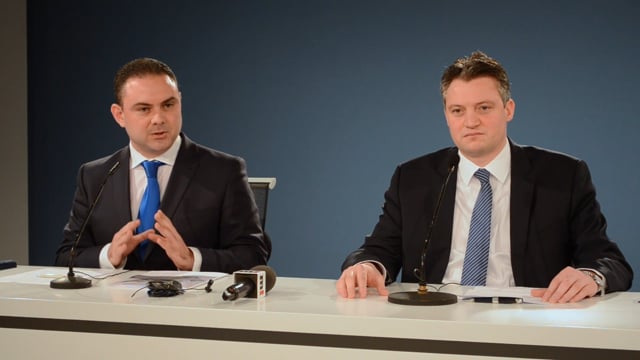[WATCH] Nomination won't be referred to watchdog • Minister insists Farrugia Frendo 'will satisfy requirements'
The Nationalist Party referred to media reports that suggest yet another legal obstacle in the appointment of Caroline Farrugia Frendo



Justice Minister Owen Bonnici has defended the recent nomination of Caroline Farrugia Frendo to the post of magistrate.
Speaking during a press conference earlier today, Bonnici said that he had "no shadow of doubt" that Farrugia Frendo would have the constitutional requisites by the time she becomes appointed.
The Nationalist Party has called for the Commission for the Administration of Justice to weigh in on the recent nomination of Caroline Farrugia Frendo to the post of magistrate, as well as the suspension of any further appointments until a reform of the system is implemented.
The Times of Malta reported that a new issue had come to light in the contentious appointment.
Magistrates can only be appointed after having served in a court of law for seven years, which would mean Farrugia Frendo, 33, daughter of Speaker Anglu Farrugia, narrowly makes the cut, having obtained her warrant on 31 January, 2009 but taken her oath in March 2009. Since October 2015 she has been working as a court attorney under Judge Abigail Lofaro at the family court.
Unnamed sources speaking to The Times raised doubts as to whether time spent working as a court attorney – who serves to assist in the drafting of rulings by the judiciary – counts towards this requirement.
The government said it did not agree with this interpretation and intended to go ahead with the nomination.
Bonnici said that the latter assertion was “legally and factually incorrect”.
"In my opinion, a court attorney carries out a very important job, and this was an opinion given by Judge Giovanni Bonello himself," he said, adding that their job was to assist judges in their final judgement.
"It seems obvious to me that they are practising the law, and it is incorrect to say that they are not allowed to practise as lawyers," he said, adding that the only impediment was private practise.
In a press statement, the PN said that this new information cast further doubts on the legality of the appointment and called upon the justice ministry to refer the case to the Commission for the Administration of Justice.
The party also requested that the President Marie Louise Coleiro Preca, in her capacity as President of the Republic as well as the Commission, ensure that no appointment would be confirmed before it has been established that the Constitution is respected.
Justice ministry reacts
The justice ministry categorically refuted this interpretation of the law.
In a press statement, the ministry said that court attorneys are definitely considered legal practitioners, so much so that their employment contract with the Attorney Genral precludes them from taking up work within the private sector.
“Doubts about whether time spent practicing as a court attorney meets the necessary requirements are completely unfounded,” the statement reads.
Moreover, a court attorney needs to have a warrant to practice for a minimum of four years before being appointed.
“The government also consulted the Attorney General, who confirmed that the appointment is in line with the Constitution’s requirements.”


.jpg)



.jpg)










.png)



